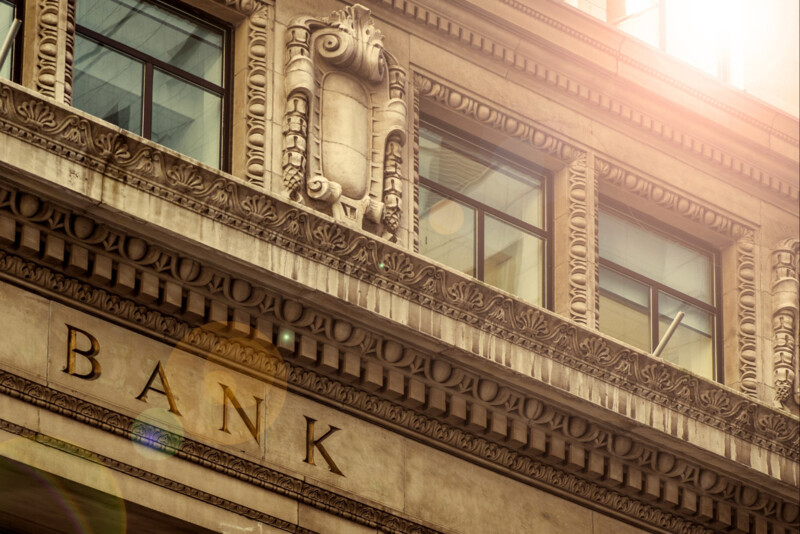Le blanchiment d'argent contribue au développement des activités illégales comme le crime organisé, le trafic de drogue ou la fraude fiscale et finance parfois le terrorisme. La France est dotée, depuis 2009, d'une législation de lutte contre le blanchiment de capitaux et le financement du terrorisme dont l'objet est d'éradiquer le plus possible ces activités, mais aussi de garantir une concurrence loyale entre les entreprises. Cet arsenal législatif comprend des dispositions pénales bien sûr, mais également un certain nombre de règles de vigilance imposées aux professions les plus exposées à ce type de risque. Le secteur bancaire fait partie de ces professions ainsi que les agents immobiliers, les opérateurs de jeux et de pari en ligne, les casinos et les sociétés de domiciliation. Les sanctions, notamment les amendes pour blanchiment d'argent à l'encontre des établissements financiers, sont fortement en hausse en 2022.
Quelles sont les obligations des établissements financiers ?
Une des missions de la Commission nationale des sanctions (pour les professionnels de l'immobilier, des jeux et les activités de domiciliation), de la Commission des sanctions de l'Autorité de contrôle prudentiel et de résolution ou de la Commission des sanctions de l'Autorité des marchés financiers (pour le secteur bancaire et financier) est de pénaliser les organismes qui omettent de signaler des opérations suspectes, ou pire qui les favorisent.
Les différentes Commissions des sanctions ont été créées pour répondre à la volonté des pouvoirs publics de mettre en place un dispositif de lutte contre le blanchiment d'argent et le financement du terrorisme, conformément à leurs engagements envers l'Union européenne.
Il est nécessaire d'agir, car ces activités frauduleuses remettent en cause la transparence et le bon fonctionnement de l'économie en général. Elles ont des conséquences préjudiciables pour la société dans son ensemble.
Les Commissions imposent une série de mesures pour lutter contre le blanchiment d'argent :
- Mise en place de systèmes d'évaluation et de gestion des risques
- Mise en place d'un protocole interne de vigilance complémentaire
- Contrôle permanent
- Identification et vérification de l'identité du client
- Conservation des documents relatifs à chaque client pendant 5 ans
- Formation et information du personnel
- Déclaration de soupçon dès qu'une opération semble anormale
- Cessation de la relation d'affaires en cas de doute
En raison de leur expérience dans leur domaine et grâce à la maîtrise de leur environnement, les établissements financiers sont tout à fait capables de détecter les comportements douteux. Ils doivent alors les signaler, d'une part, pour préserver leur intégrité et leur réputation et d'autre part, pour participer à la lutte anti-blanchiment, qui est obligatoire.
Leur responsabilité est totalement engagée. Ils sont tenus d'assumer pleinement leurs obligations sous peine de sanctions.
Que risquent les banques ?
En 2022, dans le monde, environ 5 milliards de dollars ont été payés sous forme d'amendes pour non-respect des mesures anti-blanchiment. La Danske Bank par exemple a payé à elle seule 1,9 milliard de dollars d'amende.
Les transactions suspectes non signalées, l'insuffisance des actions prises contre ce type d'opération, les lacunes commises par les divers organismes financiers ont été doublement sanctionnées en 2022 par rapport à l'année 2021. L'obligation de mettre en place des systèmes d'évaluation et de gestion des risques représente presque la majorité des manquements constatés.
La publication des sanctions, sans nécessairement faire mention du nom de l'organisme sanctionné, est systématique, afin d'informer l'ensemble des professionnels concernés.
Les Commissions ont cependant constaté qu'après un contrôle, la plupart des professionnels se mettaient en conformité.
C'est l'article L561-40 du code monétaire et financier qui précise les sanctions encourues allant de l'avertissement à l'interdiction temporaire d'exercer en passant par le blâme. Le plus souvent, ces sanctions s'accompagnent ou sont remplacées par une sanction pécuniaire (45 % des cas) dont le montant est fixé en fonction de la gravité et du nombre des manquements constatés.
